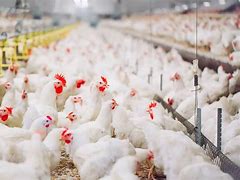Agricultural Business Ideas: Insights into Profitable Ventures and Startups
Agriculture has always been the backbone of human civilization, providing food, clothing, and shelter. However, in today’s rapidly changing world, it has transformed into a dynamic industry filled with innovative opportunities for aspiring entrepreneurs. If you’ve ever thought about diving into the agricultural sector but weren’t sure where to start, you’re in the right place. This article will explore various profitable agricultural business ideas that can help you carve out a niche in this thriving field.

Why Consider Agricultural Ventures?
The Growing Demand for Food
With the global population projected to reach nearly 10 billion by 2050, the demand for food is skyrocketing. This creates a ripe opportunity for agricultural businesses to flourish. Think about it: every person needs to eat, and as urbanization increases, so does the need for local food sources.
Sustainability and Innovation
Today’s consumers are more conscious about where their food comes from and how it’s produced. Sustainable practices are not just a trend; they’re becoming a necessity. This shift opens doors for innovative agricultural ventures that focus on eco-friendly methods.
Economic Opportunities
Agriculture isn’t just about farming; it’s a vast ecosystem that includes processing, distribution, and retail. By tapping into this ecosystem, you can create multiple revenue streams and contribute positively to your community’s economy.
Types of Profitable Agricultural Ventures
1. Poultry Farming

Why Poultry?
Poultry farming is one of the fastest-growing sectors in agriculture. With a high demand for chicken meat and eggs globally, starting a poultry farm can yield quick returns on investment.
What You Need to Know
- Types of Poultry: Chickens, ducks, turkeys, and quails.
- Startup Costs: Moderate; requires investment in housing, feed, and healthcare.
- Market Potential: With over 160 million consumers in Nigeria alone, the market is vast.
2. Fish Farming

The Aquaculture Boom
Fish farming or aquaculture is another lucrative venture. As wild fish stocks decline due to overfishing, farmed fish are becoming increasingly popular.
Key Considerations
- Types of Fish: Catfish, tilapia, trout.
- Startup Costs: Varies based on pond construction and equipment.
- Market Demand: High demand for fish protein makes this a sustainable option.
3. Mushroom Farming
A Hidden Gem
Mushroom farming is often overlooked but can be incredibly profitable with low startup costs.
Essential Insights
- Types of Mushrooms: Oyster mushrooms and shiitake are popular choices.
- Growing Conditions: Requires controlled environments but is relatively easy to manage.
- Market Potential: Increasing health consciousness boosts demand for mushrooms.
4. Hydroponic Farming
The Future of Agriculture
Hydroponics involves growing plants without soil using nutrient-rich water solutions. This method maximizes space and resources.
Advantages of Hydroponics
- Water Conservation: Uses up to 90% less water than traditional farming.
- Faster Growth Rates: Plants grow quicker due to direct nutrient access.
- Urban Viability: Perfect for urban settings where space is limited.
5. Organic Farming
Going Green
Organic farming focuses on sustainable practices that avoid synthetic fertilizers and pesticides.
Why Go Organic?
- Consumer Demand: Increasing awareness of health benefits drives demand.
- Market Opportunities: Organic products often fetch higher prices.
- Environmental Impact: Contributes positively to soil health and biodiversity.
6. Snail Farming
A Unique Niche
Snail farming is gaining traction as people discover its nutritional benefits and culinary uses.
Key Points to Consider
- Low Startup Costs: Requires minimal investment compared to other livestock.
- Market Potential: Snails are considered delicacies in many cultures.
- Sustainability: Snails have a low environmental impact.
7. Beekeeping
Buzzing Business
Beekeeping not only provides honey but also plays a crucial role in pollination.
What You Need to Know
- Initial Investment: Moderate; requires hives and protective gear.
- Market Demand: Honey is always in demand; other products include beeswax and propolis.
- Environmental Benefits: Supports biodiversity by aiding pollination.
8. Vegetable Farming
Fresh Produce Market
Growing vegetables can be both fulfilling and profitable, especially if you focus on high-demand varieties.
Key Considerations
- Crop Selection: Tomatoes, peppers, and leafy greens are popular choices.
- Seasonal Planning: Understanding growing seasons can maximize yields.
- Local Markets: Selling directly to consumers can increase profits.
9. Exotic Fruit Farming
A Taste of Adventure
Cultivating exotic fruits like dragon fruit or passion fruit can cater to niche markets.
Why Exotic Fruits?
- High Market Value: Exotic fruits often command premium prices.
- Health Trends: Increasing interest in superfoods boosts demand.
- Diverse Cultivation Options: Can be grown in various climates with proper care.
10. Greenhouse Farming
Controlled Environment Agriculture
Greenhouses allow for year-round cultivation of crops regardless of external weather conditions.
Benefits of Greenhouse Farming
- Extended Growing Seasons: Crops can be grown throughout the year.
- Pest Control: Easier management of pests and diseases.
- Higher Yields: Controlled conditions lead to more productive harvests.
The Importance of Market Research
Before diving headfirst into any agricultural venture, conducting thorough market research is essential:
Understanding Your Audience
Who are your potential customers? What do they want? Understanding your target market will help you tailor your products effectively.
Analyzing Competition
Take note of existing businesses in your area or niche. What are they doing well? Where are their weaknesses? This information can guide your strategy.
Pricing Strategies
Setting the right price point requires understanding production costs as well as what customers are willing to pay. Competitive pricing can make or break your venture.
Funding Your Agricultural Business
Starting an agricultural business often requires capital investment:
Personal Savings
Using your savings might be the simplest way to fund your startup but ensure you have enough set aside for emergencies too!
Loans
Consider applying for agricultural loans from banks or credit unions specifically designed for farmers. These often come with lower interest rates compared to standard loans.
Grants
Look into government grants aimed at promoting agricultural innovation—these can provide significant financial support without the need for repayment!
Legal Considerations
Every business needs to navigate legal waters:
Business Registration
Make sure your business is legally registered according to local laws—this protects you and gives credibility to your venture.
Permits
Depending on what type of agriculture you pursue (like livestock), you may need specific permits or licenses—don’t skip this step!
Marketing Your Agricultural Venture
Once you’ve set up shop, how do you attract customers?
Online Presence
In today’s digital age, having an online presence is crucial! Create social media profiles showcasing your products or services—engage with potential customers directly!
Local Markets
Participating in farmers’ markets or local fairs allows you to connect directly with consumers while promoting fresh produce—plus it’s fun!
Collaborations
Partnering with local restaurants or grocery stores can expand your reach—consider offering them exclusive deals on fresh produce!
Conclusion
Agricultural business ideas offer a wealth of opportunities for aspiring entrepreneurs ready to make their mark in this vital industry. Whether you’re interested in poultry farming or hydroponics, there’s something for everyone looking to tap into this ever-evolving field. With careful planning, market research, and a commitment to sustainability, you can build a successful venture that not only benefits you financially but also contributes positively to society’s food security and health needs. So why wait? Dive into the world of agriculture today! The possibilities are endless!
Meta Description
Discover profitable agricultural business ideas that cater to today’s market demands while enhancing food security and community health through innovative practices.
FAQs About Agricultural Business Ideas
1. What are some low-cost agricultural business ideas?
Low-cost options include mushroom farming, snail farming, beekeeping, and vegetable gardening—all require minimal startup investments but offer significant returns.
2. How do I choose the right agricultural venture?
Consider factors like market demand, personal interests, available resources (land/money), and local climate when selecting an agricultural business idea that suits you best.
3. Is organic farming more profitable than conventional farming?
While organic farming may have higher initial costs due to certification processes and inputs, it often commands higher prices in the market due to increasing consumer demand for organic produce.
4. How important is market research before starting an agricultural business?
Market research is crucial; it helps identify consumer preferences, competition levels, pricing strategies, and potential challenges—ensuring you’re well-prepared before launching your


